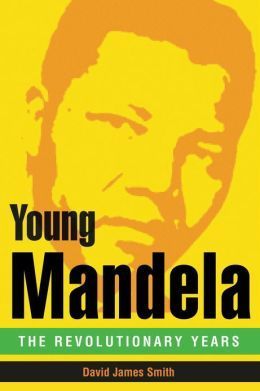
Nelson Mandela: A Biography
Book Description
Against a backdrop of fierce resistance and a struggle for justice, one man's indomitable spirit ignited a revolution. "Nelson Mandela: A Biography" dives deep into the heart of a legend, unveiling the trials and triumphs of a man who dared to dream of freedom in a land bound by apartheid. Through harrowing imprisonment, unwavering resolve, and a visionary pursuit of unity, Mandela transformed his country's destiny. Each page pulses with the tension of a hero’s journey, revealing the sacrifices made in the name of humanity. How far would one go to change the world?
Quick Book Summary
"Nelson Mandela: A Biography" by Peter Limb traces Mandela’s extraordinary journey from his rural roots in South Africa to his global stature as a symbol of resistance to oppression. The biography illustrates Mandela’s evolution from a young man confronting injustice through activism, his leadership of the African National Congress’s anti-apartheid struggles, and the immense sacrifices he endured, including 27 years in prison. Through a blend of personal stories and historical context, Limb explores the development of Mandela’s ideology of reconciliation and nonviolence. The narrative reveals not just the political icon but a complex individual shaped by hardship, guided by hope, and unwavering in his commitment to justice. Mandela’s story is one of courage, forgiveness, and the transformative power of leadership, deeply impacting South Africa and resonating worldwide.
Summary of Key Ideas
Table of Contents
From Rural Roots to Revolutionary Leader
Nelson Mandela's early life was grounded in the traditions of the Thembu people in rural South Africa. Raised amidst stern values and community expectations, Mandela was inspired by the stories of resistance against colonialism and injustice shared by his elders. His move to Johannesburg exposed him to the harsh realities of racial discrimination that shaped his political awakening. Driven by a deep sense of justice, Mandela became involved with the African National Congress (ANC), rising as a key figure advocating for the rights and dignity of black South Africans. His early activism laid the foundation for a lifetime dedicated to the transformation of his country.
Resistance and the Price of Freedom
As apartheid tightened its grip in the mid-twentieth century, Mandela’s leadership in the ANC evolved from advocating peaceful protests to supporting armed resistance when all peaceful avenues were closed. The book recounts his involvement in covert operations, the creation of Umkhonto we Sizwe, and the personal and familial costs of his activism. Constantly pursued by authorities and enduring frequent arrests, Mandela became a target of the state. His eventual arrest and the notorious Rivonia Trial, which resulted in a life sentence, marked the beginning of his long incarceration and further cemented his role as the face of the movement.
Imprisonment, Endurance, and Transformation
Mandela’s long imprisonment on Robben Island, Pollsmoor Prison, and Victor Verster Prison forms a central part of Limbs's narrative. Despite harsh conditions, Mandela remained a steadfast leader, fostering solidarity among prisoners and engaging in self-education and negotiation. The biography illuminates how prison became a crucible for Mandela’s philosophies about forgiveness, compassion, and pragmatic leadership. He maintained a hopeful vision for a nonracial democracy, refusing to compromise his principles while sacrificing personal freedom for the collective cause of his people.
Reconciliation and Nation-Building
The winds of change eventually brought Mandela’s release, signaling a turning point in South African history. Upon his emergence, Mandela became the architect of negotiations with the apartheid government, channeling decades of struggle into the nation’s peaceful transition to democracy. His strategy was characterized by openness to reconciliation and an unwavering commitment to healing a divided nation. Mandela’s presidency is described as a period of visionary nation-building, wherein he prioritized truth, unity, and institutional reform, establishing the Truth and Reconciliation Commission to address the crimes of apartheid.
Mandela’s Global Legacy
Peter Limb’s biography concludes with an exploration of Mandela’s enduring influence in South Africa and beyond. Mandela became a global emblem for justice, peace, and human rights, his legacy shaping generations of leaders and activists. Limb reflects on how Mandela’s personal resilience, moral clarity, and capacity for forgiveness not only transformed a nation but inspired movements worldwide. The book underscores that Mandela’s journey is a testament to the pursuit of equality through perseverance, compassion, and visionary leadership.
Download This Summary
Get a free PDF of this summary instantly — no email required.





